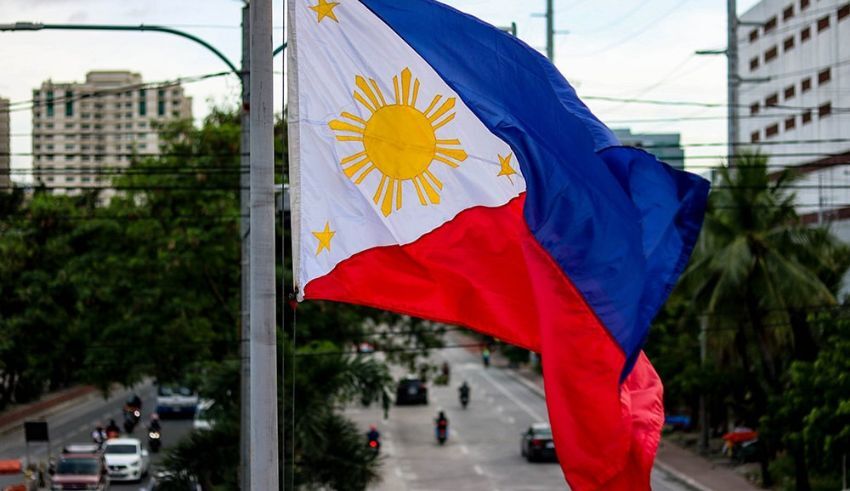
The Philippines is closely monitoring the situation in Taiwan, as the island faces increasing pressure and threats from China, which claims it as part of its territory. The Philippines, which has its own territorial disputes with China in the South China Sea, is concerned about the implications of a potential conflict between Taiwan and China for its security and interests in the region.
The Tensions Between Taiwan and China
Taiwan and China have a long and complicated history, dating back to the end of the Chinese civil war in 1949, when the defeated Nationalist forces fled to Taiwan and established a separate government, while the Communist forces took over mainland China. Since then, Taiwan has developed into a prosperous and democratic society, with its own constitution, currency, military, and foreign relations. However, China considers Taiwan as a renegade province that must be reunited with the mainland, by force if necessary.
The tensions between Taiwan and China have escalated in recent years, as China has intensified its military, diplomatic, and economic coercion against Taiwan, in response to the island’s growing assertiveness and independence. China has increased its military exercises and incursions near Taiwan, including sending warplanes and ships across the median line of the Taiwan Strait, which serves as an unofficial boundary between the two sides. China has also reduced Taiwan’s international space and influence, by poaching its diplomatic allies and blocking its participation in international organizations and events. China has also imposed sanctions and restrictions on Taiwan’s trade and tourism, to isolate and pressure the island.
The Interests of the Philippines
The Philippines has a stake in the stability and peace of the Taiwan Strait, as it affects its security and interests in the region. The Philippines has several interests, such as:
- Maintaining its sovereignty and territorial integrity: The Philippines is involved in a longstanding and unresolved dispute with China over the ownership and control of parts of the South China Sea, which is rich in natural resources and strategic importance. The Philippines fears that a conflict between Taiwan and China could spill over into the South China Sea, and endanger its sovereignty and territorial integrity, as well as its access and rights to the disputed waters and islands.
- Preserving its economic and trade relations: The Philippines has strong and mutually beneficial economic and trade relations with both Taiwan and China, which are among its top trading partners and sources of investment, tourism, and remittances. The Philippines worries that a conflict between Taiwan and China could disrupt its economic and trade relations with both sides, and harm its growth and development, especially amid the COVID-19 pandemic, which has already battered its economy.
- Protecting its citizens and nationals: The Philippines has a large and vibrant community of citizens and nationals living and working in Taiwan, estimated at around 150,000. The Philippines cares about the safety and welfare of its citizens and nationals in Taiwan, and wants to ensure their protection and evacuation in case of a conflict between Taiwan and China.
- Upholding its values and principles: The Philippines values and supports the principles of democracy, human rights, and self-determination, which are embodied by Taiwan. The Philippines respects and recognizes Taiwan’s achievements and aspirations, and opposes any form of coercion or intimidation against it. The Philippines also adheres to the principles of international law and peaceful resolution of disputes, which are challenged by China’s aggressive and unilateral actions.
Keep Reading
The Challenges of the Philippines
The Philippines faces several challenges in dealing with the situation in Taiwan, such as:
- Balancing its relations with Taiwan and China: The Philippines has to balance its relations with Taiwan and China, which are both important and influential partners for the Philippines. The Philippines has to maintain its diplomatic ties and cooperation with China, which is a major power and a key player in the region and the world. The Philippines also has to maintain its substantive and unofficial relations with Taiwan, which is a close and reliable partner and a fellow democracy. The Philippines has to avoid taking sides or provoking either party, while also expressing its views and concerns.
- Managing its alliance with the US: The Philippines has to manage its alliance with the US, which is its oldest and most strategic ally, and the main guarantor of its security and defense. The US has a strong and longstanding commitment to Taiwan, which is based on the Taiwan Relations Act of 1979, which authorizes the US to provide Taiwan with arms and assistance to defend itself. The US also has a mutual defense treaty with the Philippines, which obliges the US to defend the Philippines in case of an armed attack. The Philippines has to coordinate and consult with the US on the situation in Taiwan, and clarify the scope and extent of their alliance and obligations.
- Preparing for contingencies and scenarios: The Philippines has to prepare for contingencies and scenarios that could arise from the situation in Taiwan, and plan its responses and actions accordingly. The Philippines has to assess the risks and opportunities, and weigh the costs and benefits, of its possible involvement or intervention in a conflict between Taiwan and China. The Philippines has to mobilize and deploy its resources and capabilities, and enhance its readiness and resilience, to protect its interests and values.
The situation in Taiwan is a matter of concern and interest for the Philippines, as it affects its security and interests in the region. The Philippines is keeping an eye on Taiwan, as the island faces increasing pressure and threats from China, which claims it as part of its territory. The Philippines has to balance its relations with Taiwan and China, manage its alliance with the US, and prepare for contingencies and scenarios, to ensure the stability and peace of the Taiwan Strait, and the region as a whole.




